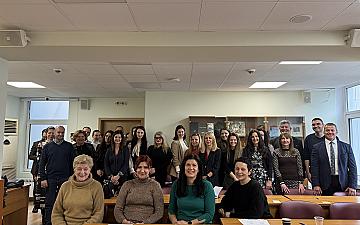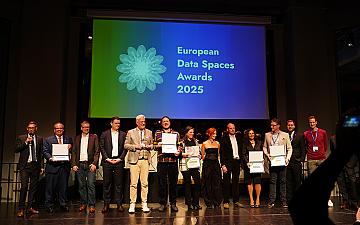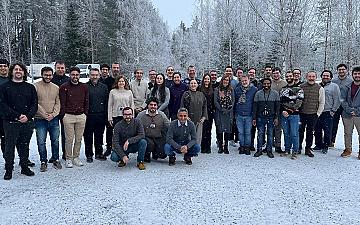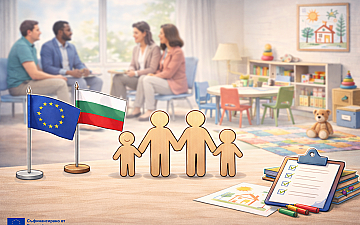The first day of the International Workshop “Preventing secondary and repeat victimisation of child victims of crime: Risk assessments and solutions in the best interests of the child” was held on the 17th of March. The Workshop was organised by the South-East European Research Centre in Greece (SEERC) under the E-PROTECT II project and focused on the best practices and means for preventing secondary and repeat victimisation of child victims of crime identified across the different Member States. The event gathered more than 260 professionals working in the field of juvenile justice and criminal justice in general.
First part of the workshop was kicked-off with a brief introduction of the E-PROTECT II project by SEERC, summarising the aims of the project along with its accomplished and upcoming activities. After the introduction, the keynote speaker Bragi Gudbrandson, Member of the UN Committee of the Rights of the Child and a former Director of the Iceland Government Agency for Child Protection revealed historic milestones that led to the development of the Barnahus model and its application across Europe. As a pioneer of the Barnahus model, Mr. Gudbrandson shared very interesting facts about his experience concerning the application of the model in the Nordic countries which resulted in multiple questions by participants and in a intriguing discussion afterwards.
Following Mr. Gudbrandson’s presentation, another expert in the field of child protection - Astrid Helling-Bakki, Executive Director of the World Childhood Foundation Germany, provided us with a comprehensive overview of the implementation of the Barnahus model in Germany, indicating the growing need for specialists in the area of child-friendly justice not only in Germany, but across Europe.
The second panel of the workshop was dedicated on the experience from the partner countries promoting solutions in the best interests of the child in the context of preventing secondary and repeat victimisation. The panel was moderated by Ms. Snezhana Krumova, Project Coordinator of E-PROTECT II. The session involved 4 experts in the field of juvenile justice who shared their practical experience.
Firstly, Mr Fotis Tegos of the Office for Protection of Child Victims "Spiti tou Paidiou" at Thessaloniki shared some valuable insights of the implementation of the Barnahus-like model in Thessaloniki, including the challenges within its implementation. Afterwards, Juvenile Prosecutor Claudia de Luca from Italy shared her thoughts on the challenges she has faced, working with minor victims, emphasising on the cases where minor perpetrators occur to be victims at the same time.
The panel discussion continued with Judge Ivanichka Slavkova – a judge in Varna’s District Court with over 20-year experience in the field of criminal procedure and specialised in juvenile justice. Her presentation was focused on the methodology which is followed in Bulgaria with respect to preserving the best interest of the child. Judge Slavkova also revealed some interesting aspect of the process of practical application of the so called “Blue Rooms” used for hearings of child victims in Bulgaria, raising some questions regarding their value for the implementation of a child-friendly justice methodology in Bulgaria.
The last lecturer participating in the panel was Roberta di Bella – Member of the Juvenile Chamber of Genoa and Member of the National Union of Juvenile Chambers in Italy. Roberta di Bella put the focus on the role that lawyers play in the child protection system, underlining some provisions of the Italian legislation in force which guarantee the adequate representation of the child before the court. After the end of all presentations in the second panel, a fruitful discussion between participants and panelists emerged which resulted in a various important conclusions drawn at the end of the workshop’s 1st day.
Do not miss the 2nd day of the International Workshop organised within E-PROTECT II project which will be held on the 24th of March, where we will have another portion of interesting discussions and lecturers who are experts in the field of juvenile justice to tell us more about the implementation of the European standards with respect to the risk assessment of child victims of crime.
The project is implemented with the support of the JUST Programme of the European Commission under Grant Agreement № 878593.









